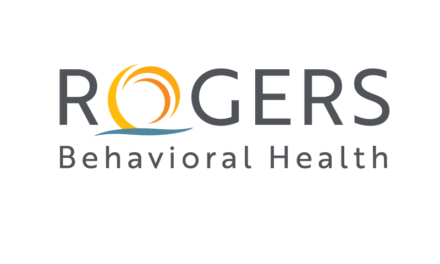
Advocates: Proposed Medicaid cuts would have ‘devastating impact’
Wisconsin advocates for mental health, those with lower incomes and those with disabilities are warning that proposed funding cuts and structural changes for Medicaid could reduce services.
“Medicaid is at a crossroads,” Jon Peacock, Wisconsin Council on Children and Families research director, told reporters on a Thursday conference call. “We fear that Congress and the president are going to put it on a path that leads to sharply reduced healthcare services for seniors, people with disabilities and low income children and families.”
Peacock pointed toward the Congressional Budget Office’s estimate that the House GOP bill would cut Medicaid funding by $834 billion over the next decade. President Donald Trump’s budget would cut the program by roughly $1.3 trillion over the next decade, according to an analysis Peacock cited from the Center on Budget and Policy Priorities.
The house GOP bill as well as Trump’s budget would also change Medicaid to a block grant program or a per capita allotment, depending on what a state prefers. Peacock said that would allow lawmakers to cut the program more in the future.
A budget analysis released by Trump’s administration argues current Medicaid growth is “unsustainable.” The current program encourages states to shift costs to the federal government and doesn’t incentivize preventing waste and fraud, it argues.
The analysis also points toward “restrictive and complex” rules around the program that tie “states’ hands.” Moving to a per capita or block grant system, the analysis argues, would give states flexibility to design programs that encourage “work and personal responsibility.”
“The budget would help set Medicaid on a sustainable path and ensure the program could continue to provide care to those who are most vulnerable,” according to the document.
There are nearly 1.2 million Wisconsinites enrolled in Medicaid. Barbara Beckert, Disability Rights Wisconsin Milwaukee office director, said that about a quarter of those are either children and adults with disabilities or older, frail adults.
Wisconsin has developed innovative and cost-effective programs that keep people out of institutions like nursing homes, she said. Cutting Medicaid puts those programs at risk and could bring back waiting lists for services that the state ended.
“Wisconsin, which has been such a leader in developing innovative Medicaid programs, stands to lose a great deal,” Beckert said. “Cuts of this magnitude will have a devastating impact on our most vulnerable community members.”
Mary Neubauer, co-chair of the Milwaukee Mental Health Task Force and a member of the Milwaukee County Mental Health Board, said the proposed changes “have the potential to have a monumental and astronomical impact on my life in every way, shape and form – in a negative way.”
“If my Medicaid services are reduced or eliminated, I’m unable to work or serve the community as a volunteer,” she said. “I’m very serious when I say that my life is on the line.”
Mike Bare, research and program coordinator of Community Advocates Public Policy Institute, also questioned the efficacy of work requirements, drug screening, health risk assessments eligibility caps and premiums for childless adults in BadgerCare. A waiver the Department of Health Services plans to submit for federal approval soon calls for those provisions.
“There’s just simply no evidence that these policies will improve health outcomes for BadgerCare enrollees,” he said. “No drug user is going to suddenly get clean; no person who’s out of work is guaranteed to find it.”
DHS was set to submit the waiver amendment last week, but held back as it sifted through more than 1,000 comments it received on the plan.
Last week, the Legislature’s Joint Finance Committee added a provision to the state’s 2017-19 budget that would give it final say over the waiver if it’s approved by the federal government, according to the Legislative Fiscal Bureau.
In response to an email about the impact of that provision, DHS spokeswoman Elizabeth Goodsitt said the department will pursue an “open and transparent process.”
“DHS will work with the Legislature regarding the waiver amendment; however, it is premature to speculate on any biennial budget provisions regarding the waiver, as such provisions have not yet been approved by the full Legislature, or signed into law,” she wrote in an email.





